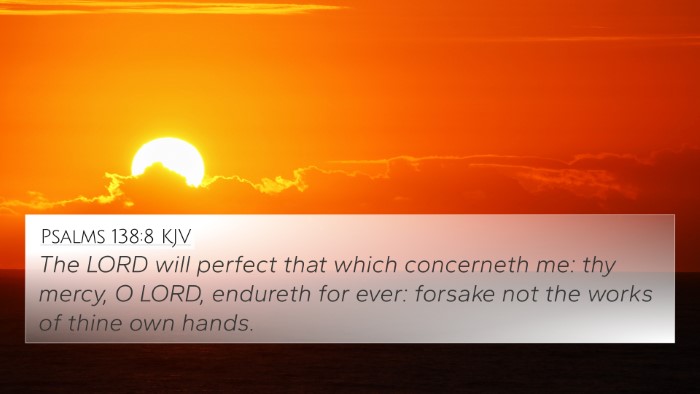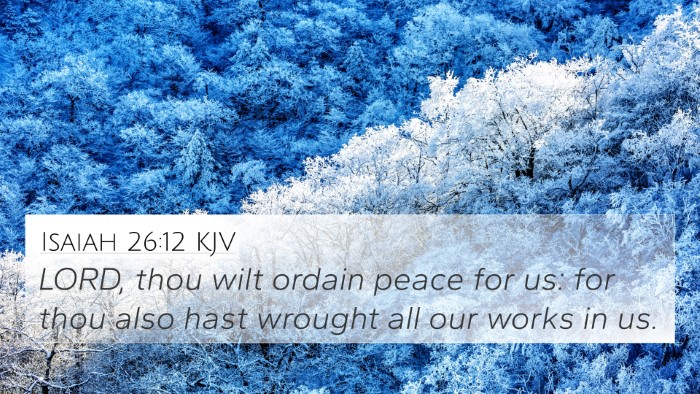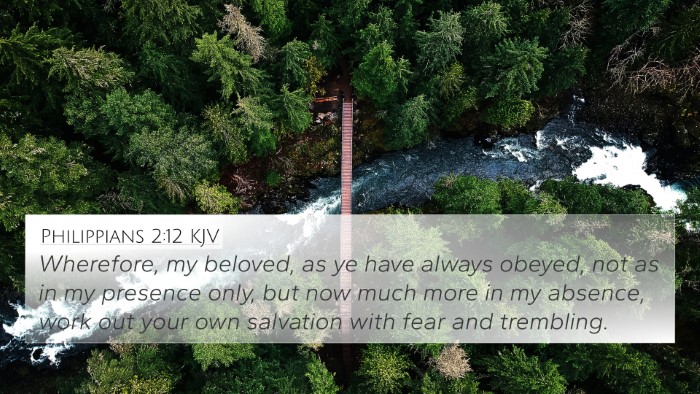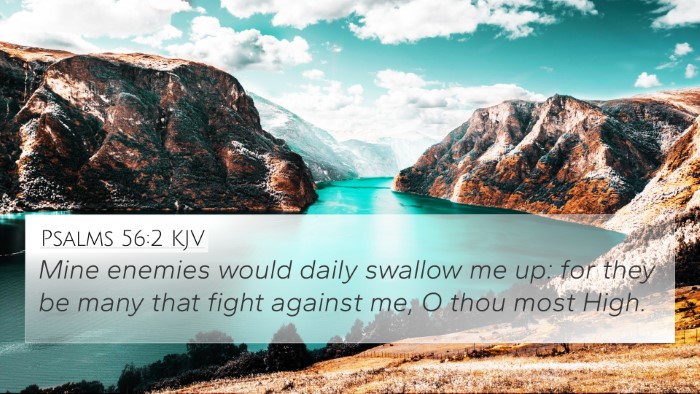Psalms 57:2 Meaning and Interpretation
Bible Verse: Psalms 57:2 - "I cry out to God Most High, to God who fulfills his purpose for me."
Summary of Meaning
This verse encapsulates the heartfelt appeal of David, expressing both his trust in God and a recognition of God's sovereign purpose in his life. David is in a distressing situation, yet he looks upward to God for deliverance, acknowledging God’s authority as the “Most High.” This reflects a profound faith in God's plans and intentions.
Insights from Public Domain Commentaries
Matthew Henry's Commentary
Henry emphasizes the personal nature of David's plea, highlighting the intimacy of calling upon God as “Most High.” David recognizes that despite his circumstances, God remains in control and has a divine purpose for him. Henry notes that in times of danger, a proper response is to cry out to God, who is capable of delivering us from our troubles.
Albert Barnes' Commentary
Barnes points out that the phrase “God who fulfills his purpose” indicates God's commitment to executing His divine will. This brings comfort to believers, assuring them that their lives are not random but guided by a higher plan. Barnes also connects this verse to the idea that God is faithful in fulfilling His promises, reinforcing the hope that comes through reliance on God during trials.
Adam Clarke's Commentary
Clarke brings forth the application of this verse in understanding divine providence. He notes that God's purpose might be fulfilled through trials, suggesting that believers must endure hardships with patience while trusting in God’s greater plan. Clarke emphasizes that the believer’s cry is not in vain, for God listens and acts according to His purpose.
Bible Verse Cross-References
- Romans 8:28: "And we know that in all things God works for the good of those who love him, who have been called according to his purpose." - This verse reinforces God's ability to use all circumstances for our benefit.
- Psalm 33:11: "But the plans of the LORD stand firm forever, the purposes of his heart through all generations." - Highlights the eternal nature of God's plans.
- Jeremiah 29:11: "For I know the plans I have for you," declares the LORD, "plans to prosper you and not to harm you, plans to give you hope and a future." - Shows God’s intention is for our welfare and future success.
- Philippians 1:6: "Being confident of this, that he who began a good work in you will carry it on to completion until the day of Christ Jesus." - Assurance that God's work within us will be completed.
- Proverbs 16:9: "In their hearts humans plan their course, but the LORD establishes their steps." - A reminder of God's guidance in our pursuits.
- Isaiah 14:24: "The LORD Almighty has sworn, ‘Surely, as I have planned, so it will be, and as I have purposed, so it will happen.’" - Reiterates the certainty of God’s plans.
- 1 Peter 5:7: "Cast all your anxiety on him because he cares for you." - Encouragement to trust and rely on God in troubling times.
Connections Between Bible Verses
This verse relates to various themes found throughout the Scriptures, establishing a rich tapestry of inter-Biblical dialogue:
- Faith in Trials: Both James 1:2-4 and 1 Peter 1:6-7 speak to the testing of faith, echoing David’s situation.
- God’s Sovereignty: Passages like Daniel 4:35 and Acts 4:24 emphasize God's control over all things, similar to David’s acknowledgment in Psalms 57:2.
- God’s Purpose: Ephesians 1:11 discusses how believers are predestined according to God’s purpose, connecting to David's affirmation of God's fulfilling purpose.
Thematic Bible Verse Connections
Understanding Psalms 57:2 opens up thematic connections with several biblical principles:
- Divine Assistance: The assurance of God’s help resonates throughout the Psalms and New Testament, as seen in John 16:33 where Jesus assures believers of His victory.
- Prayer and Trust: Reflective of Philippians 4:6-7, where believers are encouraged not to be anxious but to present their requests to God.
- God’s Leadership: The call to recognize God as the Most High parallels multiple verses in both the Old and New Testament emphasizing His authority, such as Exodus 15:18.
Comprehensive Bible Cross-Reference Materials
Tools for engaging with cross-references can enhance your biblical understanding:
- A Bible Concordance allows for easy navigation between related verses.
- A Cross-Reference Bible Study method is valuable for making thematic connections.
- Utilizing Bible Reference Resources helps uncover deeper meaning behind verses through context.
Understanding through Comparative Analysis
Through comparative Bible verse analysis, one can discern how verses amplify each other's meanings, enriching the understanding of God's character and His dealings with humanity. By examining parallels between Old and New Testament texts, believers can appreciate the cohesion of God's message throughout Scripture.










